Removal Procedure
Tools Required
J 39580 (DW110-010) Power pack stand engine and transaxle assembly support remover/installer
- Remove the fuel pump fuse.
- Start the engine. After it stalls, crank the engine after it stalls for 10 seconds to rid the fuel system of fuel pressure.
- Remove the air filter bolts and the air filter assembly.
- Remove the air inlet duct bolts the air inlet duct.
- Disconnect the manifold intake temperature (IAT) sensor connector.
- Disconnect the breather hose form the valve cover.
- Disconnect the air intake tube from the throttle body.
- Drain the engine coolant. Refer to Cooling System Draining and Filling in Engine Cooling.
- Discharge the air conditioning system, if equipped. Refer to Refrigerant Recovery and Recharging in Heating, Ventilation and Air Conditioning.
- Remove the battery and battery tray. Refer to Battery and Battery Tray Replacement in Engine Electrical.
- Remove the fuse box cover.
- Remove the battery lead nut at the fuse box.
- Disconnect the battery lead at the fuse box.
- Disconnect the engine wiring harness connectors.
- Remove the surge tank. Refer to Radiator Surge Tank Replacement in Engine Cooling.
- Disconnect the backup switch connector from the transaxle case.
- Disconnect the gear shift control guide with the bolt.
- Disconnect the upper radiator hose at the thermostat housing.
- Disconnect the power steering pressure hose and the power steering suction hose from the power steering pump. Refer to Power Steering Pump Hoses and Pipes Replacement in Power Steering System.
- Disconnect the A/C compressor hose assembly and the connector from the compressor. Refer to Suction Hose Replacement in Heating, Ventilation, and Air Conditioning.
- Remove the front wheel. Refer to Tire and Wheel Removal and Installation in Tires and Wheels.
- Remove the front wheel well splash shield.
- Remove the front exhaust pipe. Refer to Front Pipe Replacement in Exhaust System.
- Disconnect the heater inlet hose at the heater core.
- Disconnect the heater outlet hose at the heater core.
- Disconnect the vacuum line from the charcoal canister purge solenoid.
- Disconnect the brake vacuum hose at the intake manifold.
- Disconnect the A/C compressor connector at the A/C compressor coil.
- Disconnect the lower radiator hose at the coolant pipe.
- Disconnect the fluid cooler inlet hose from the transaxle.
- Disconnect the fluid cooler outlet hose from the transaxle.
- Remove the lower engine mount. Refer to Engine Mount Replacement .
- Remove the cross member.
- Disconnect the drive axle assembly from the transaxle.
- Using the J 39580 support the engine and transaxle.
- Remove the right side engine mount. Refer to Engine Mount Replacement .
- Remove the transaxle mount. Refer to Transmission Mount Bracket Replacement in Automatic Transmission.
- Slowly lift the vehicle. Refer to Lifting and Jacking the Vehicle in General Information.
- Disconnect the engine assembly from the transaxle assembly. Refer to Transmission Replacement in Automatic Transmission.
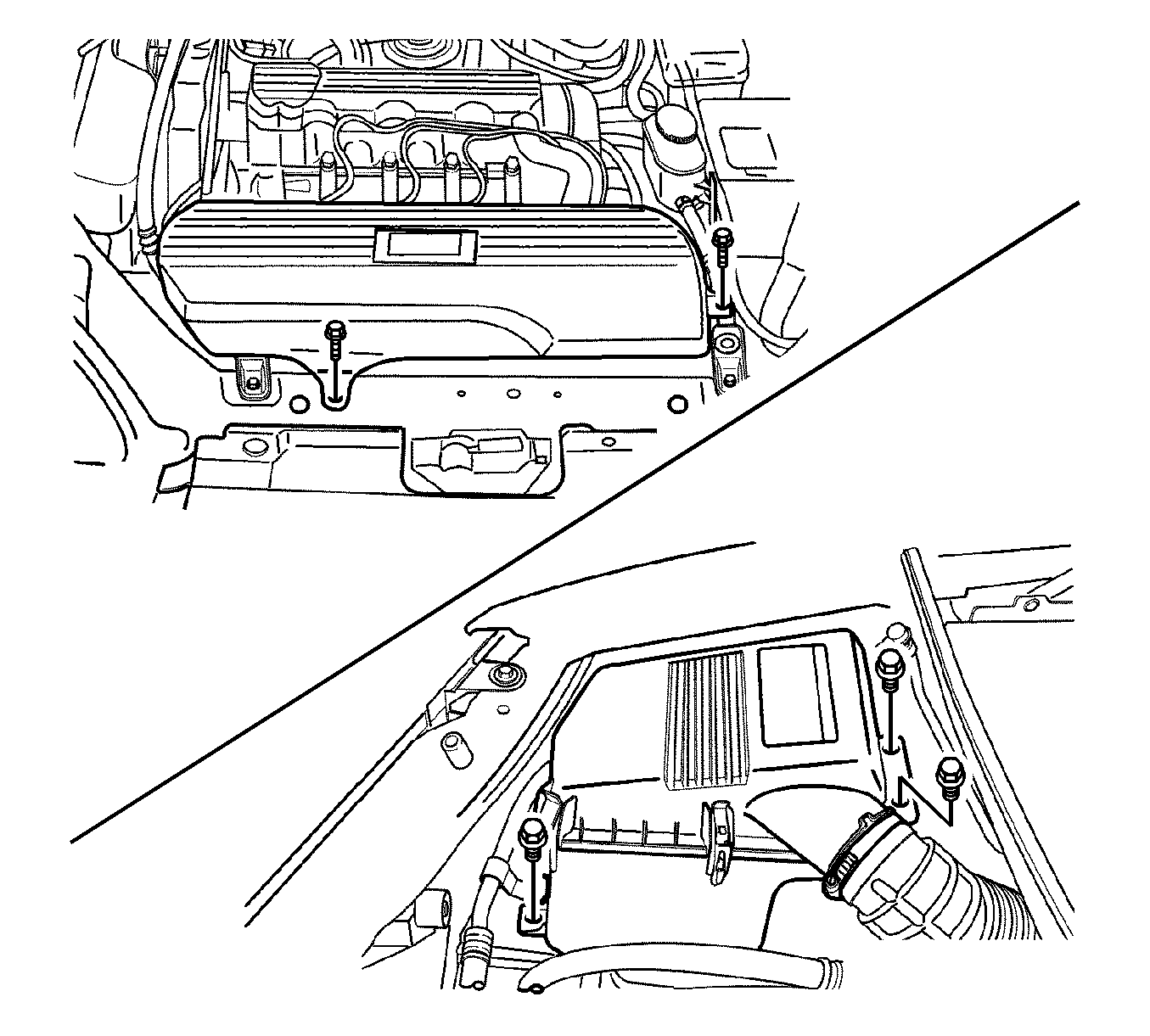
Notice: If the engine is damaged internally and a new engine assembly is installed in the vehicle, ensure that all foreign material is flushed out of the cooling system. You must also flush out the oil cooler system. Failure to rid the oil cooler system of debris can result in engine damage.
Important: On vehicles equipped with manual transaxle, the manual transaxle must be removed before the engine is removed. Refer to Transmission Replacement in Manual Transmission.
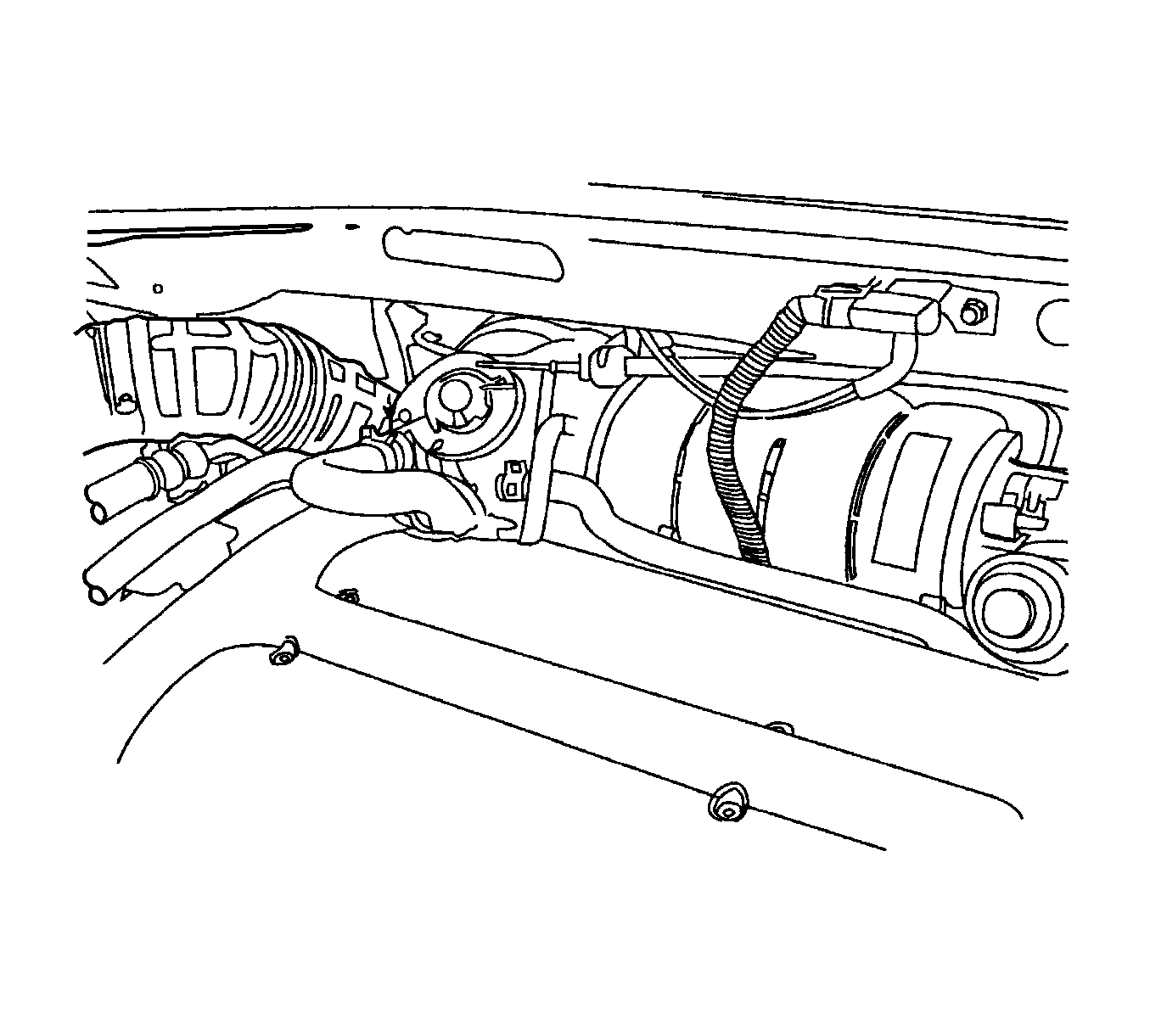
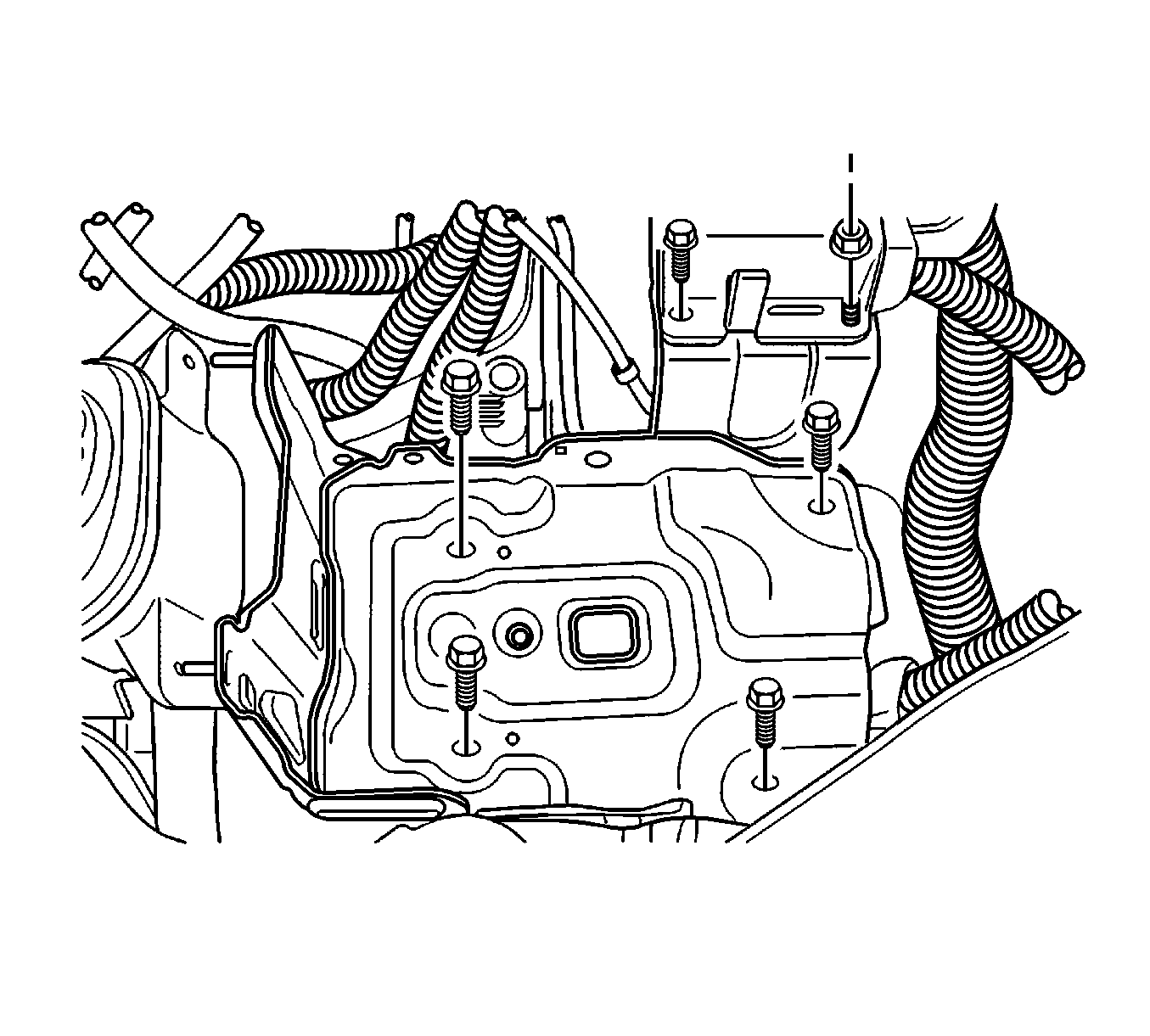
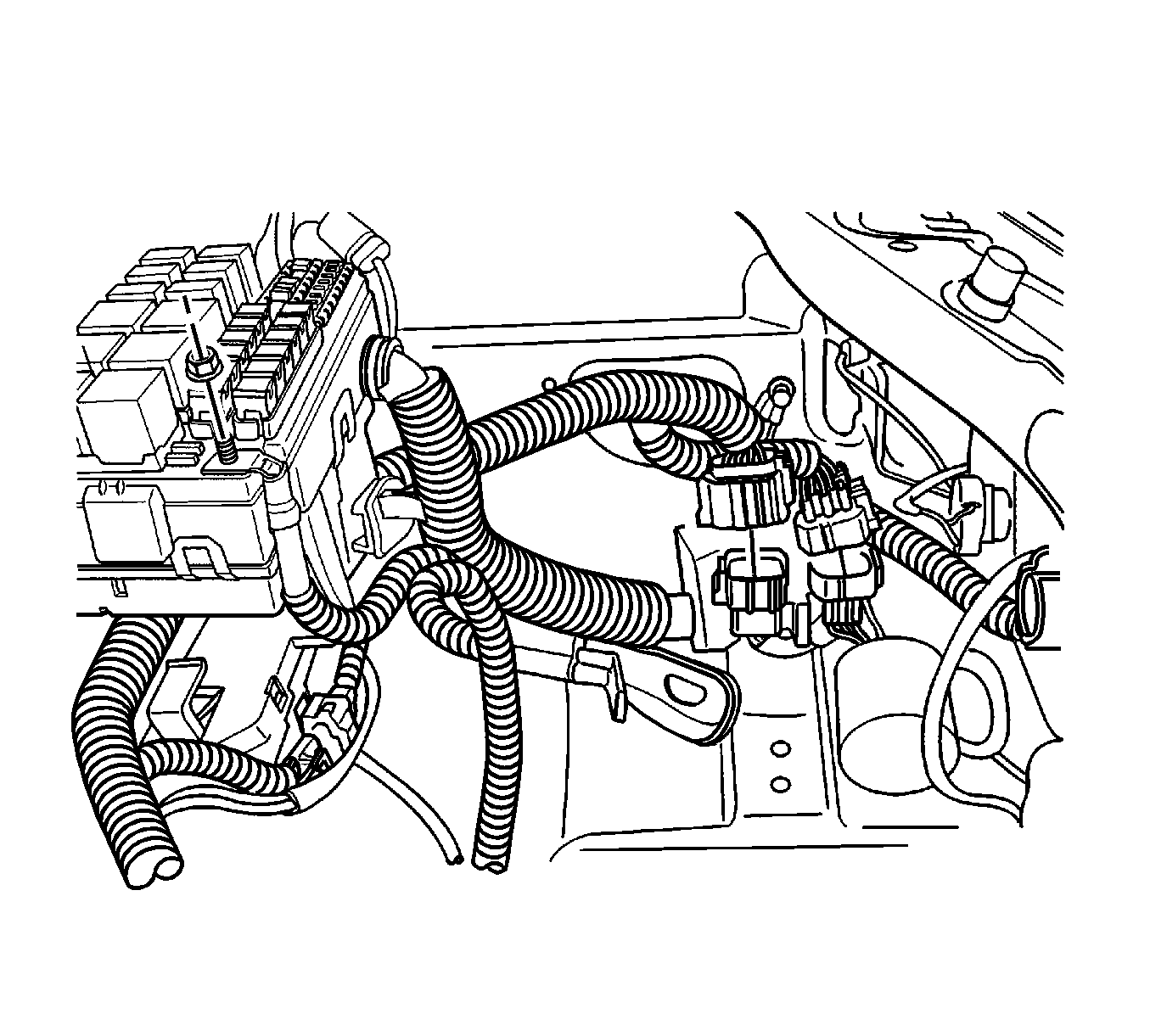
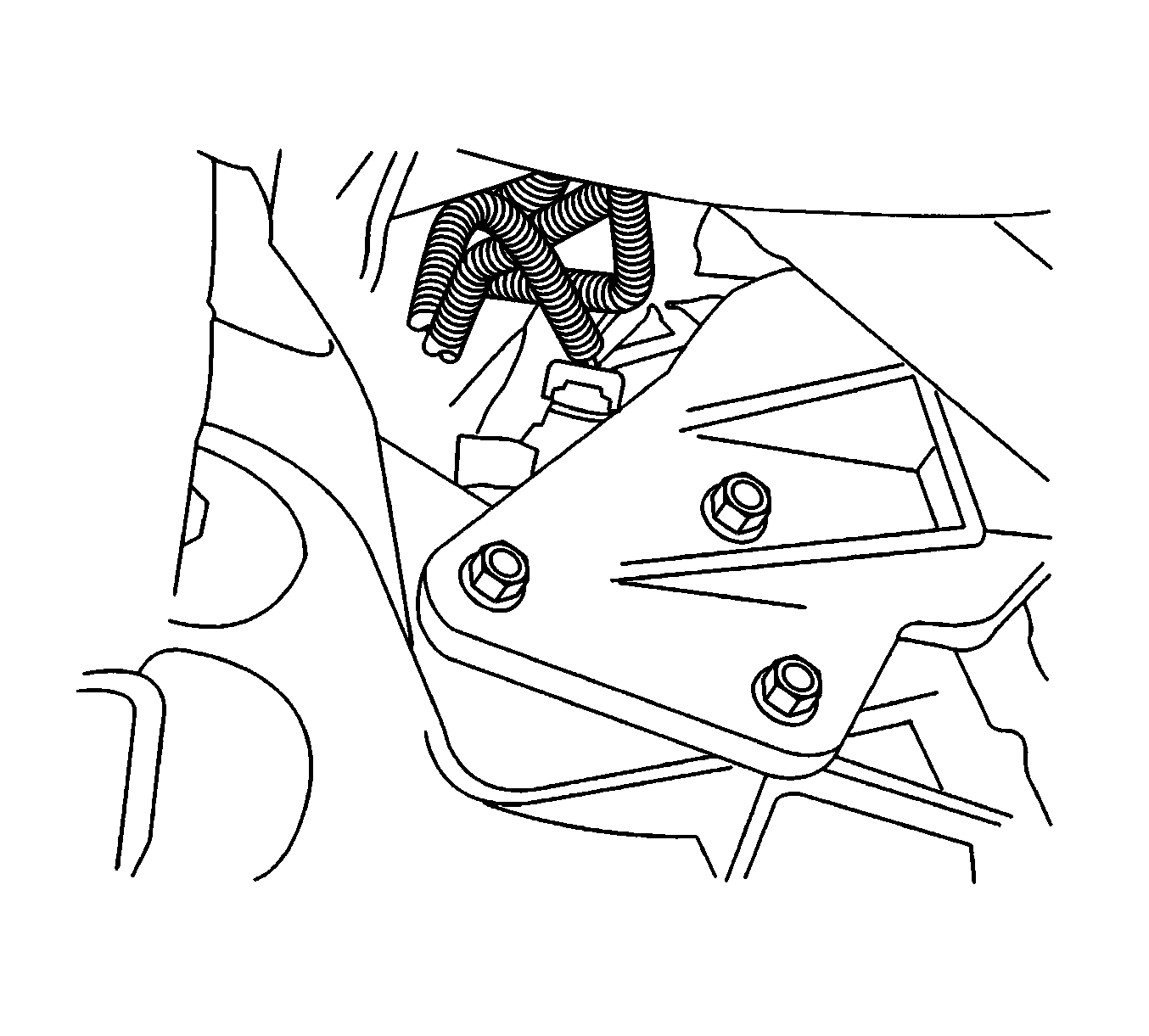
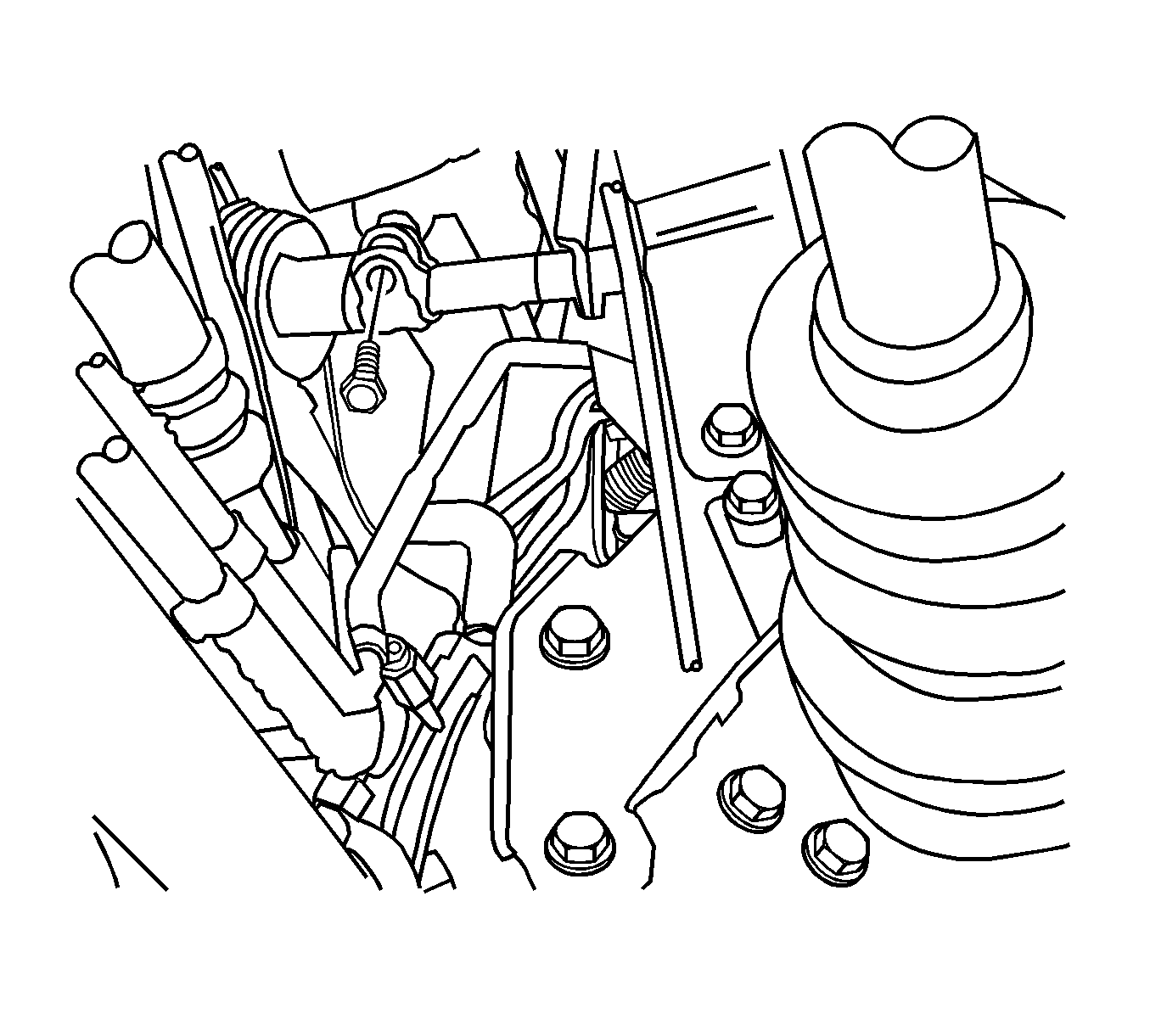
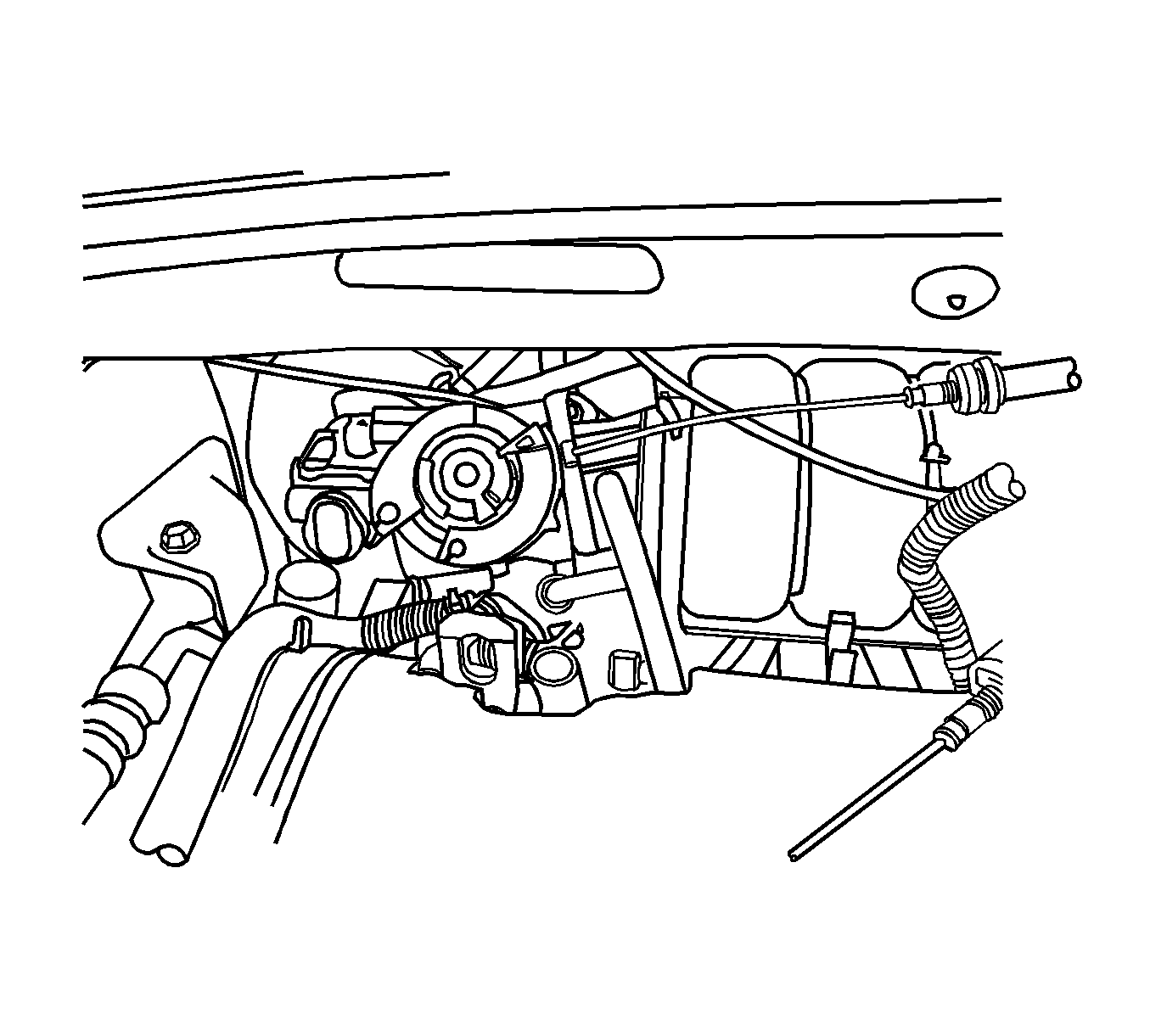
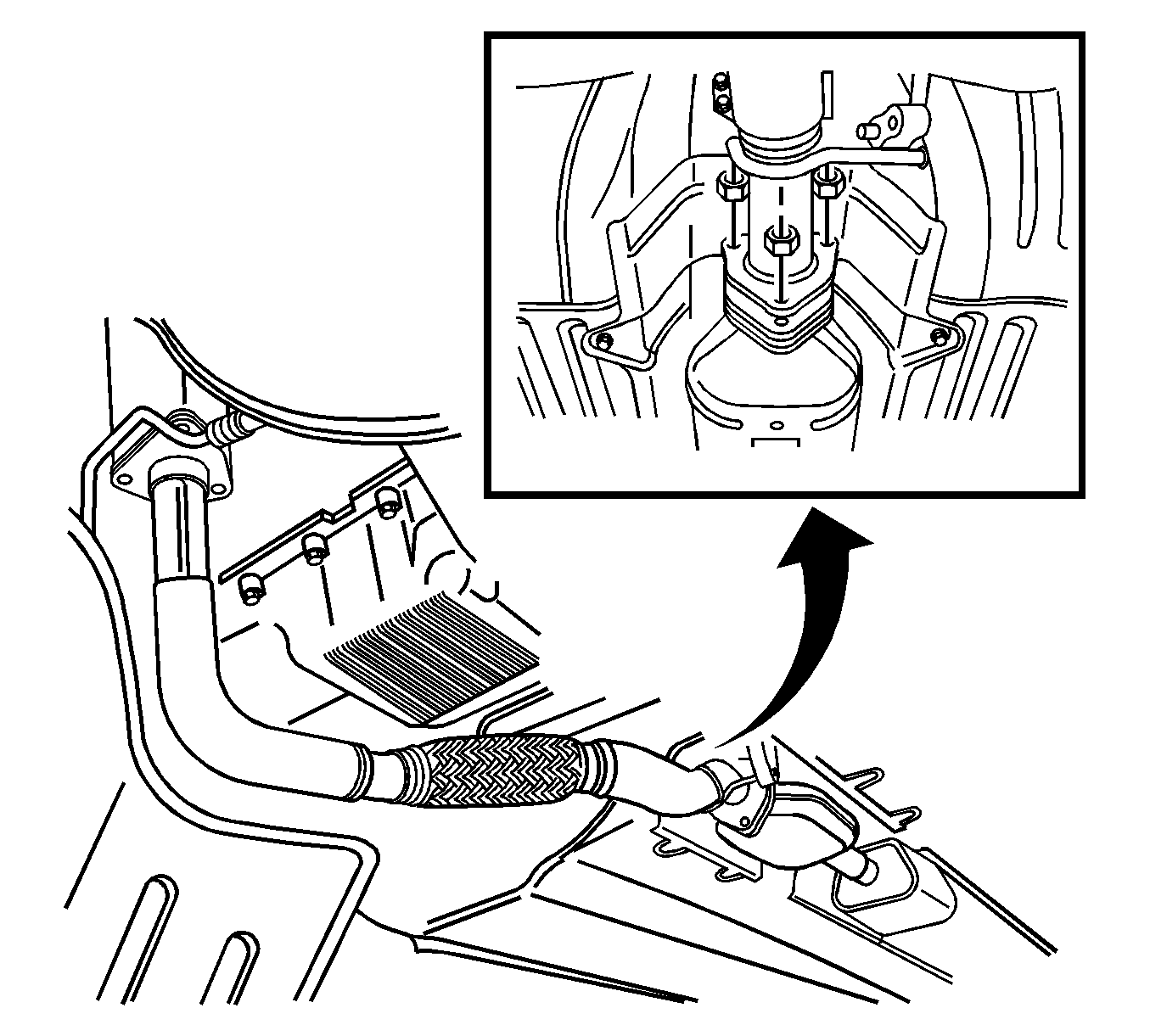
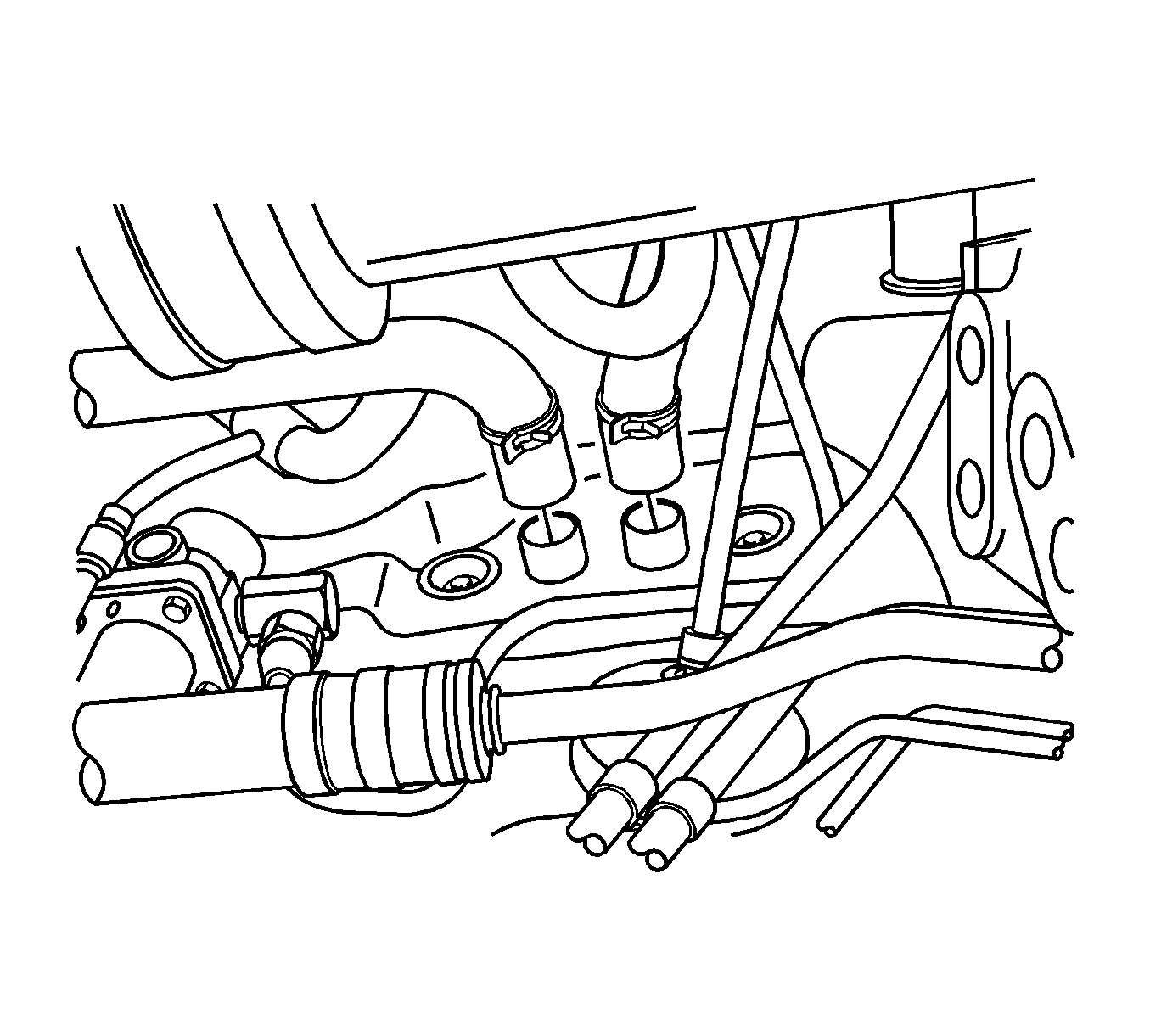
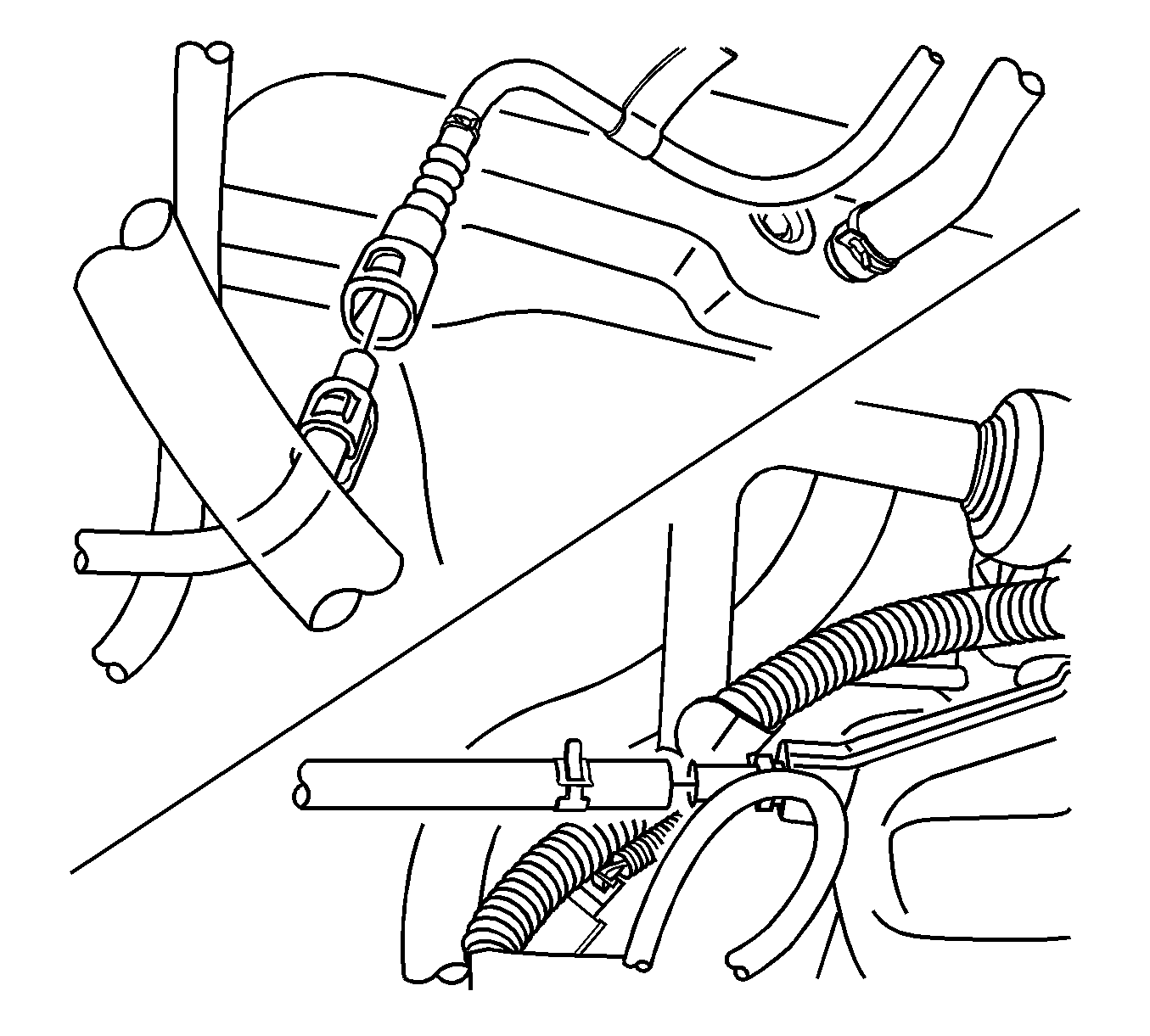
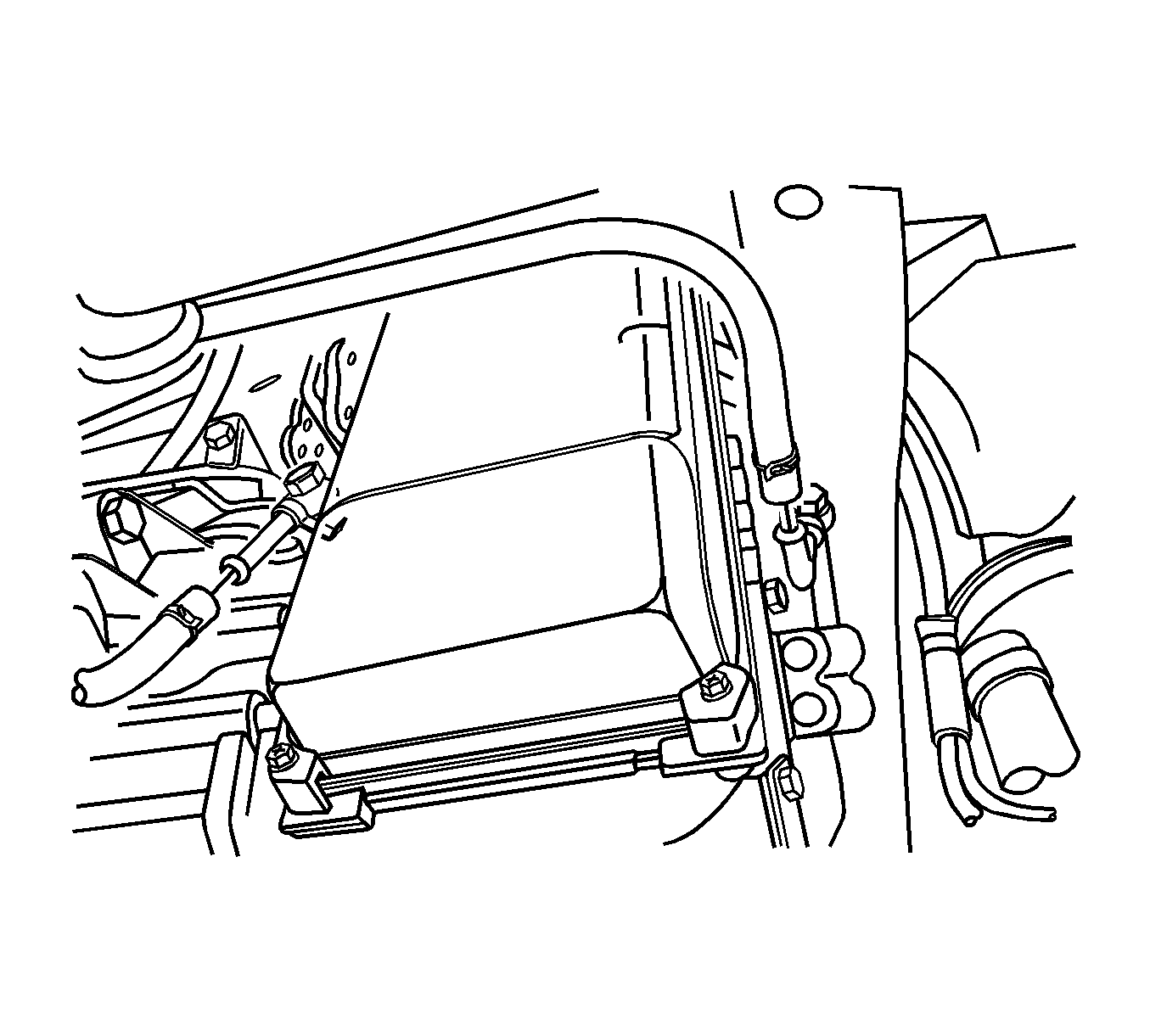
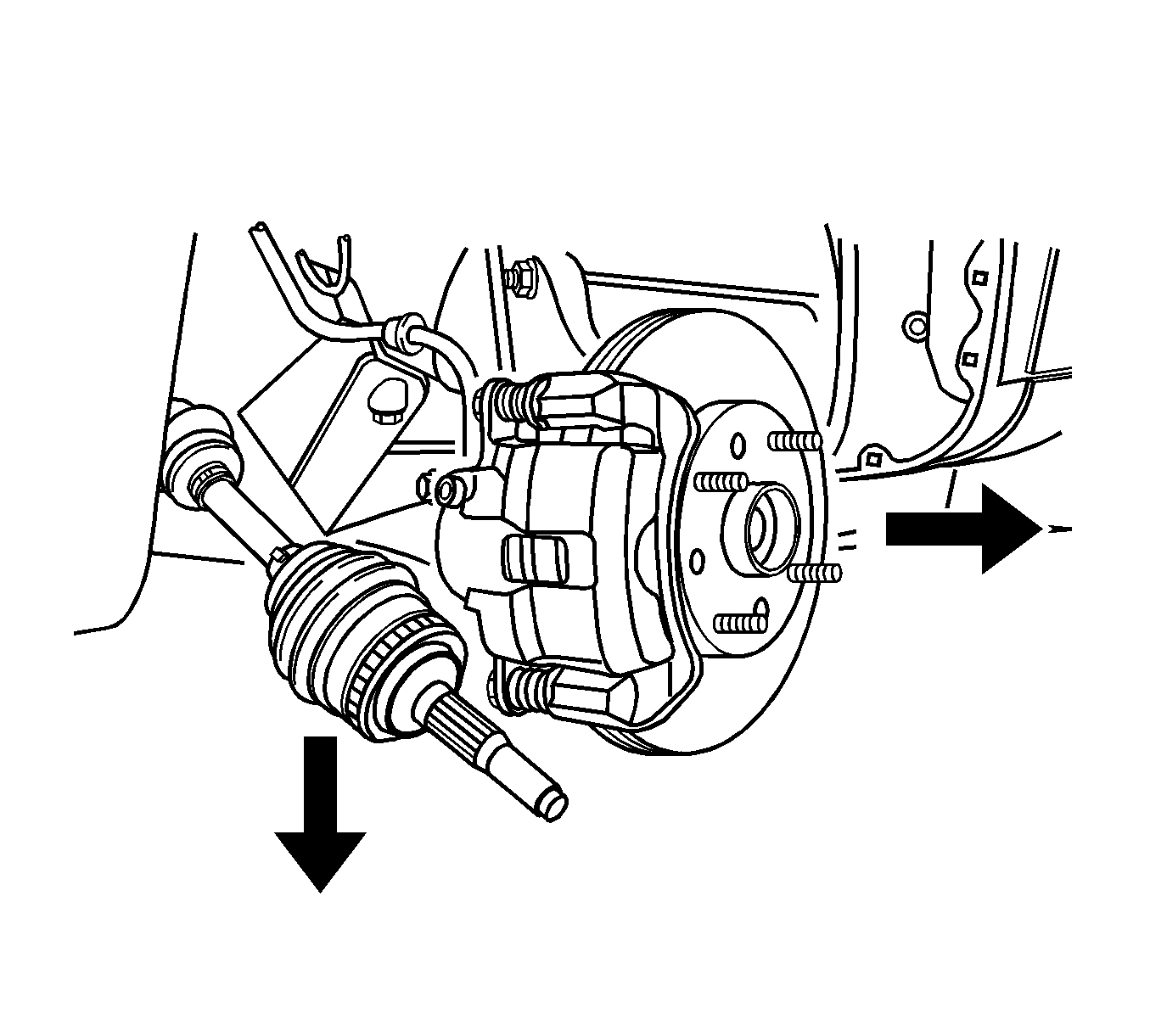
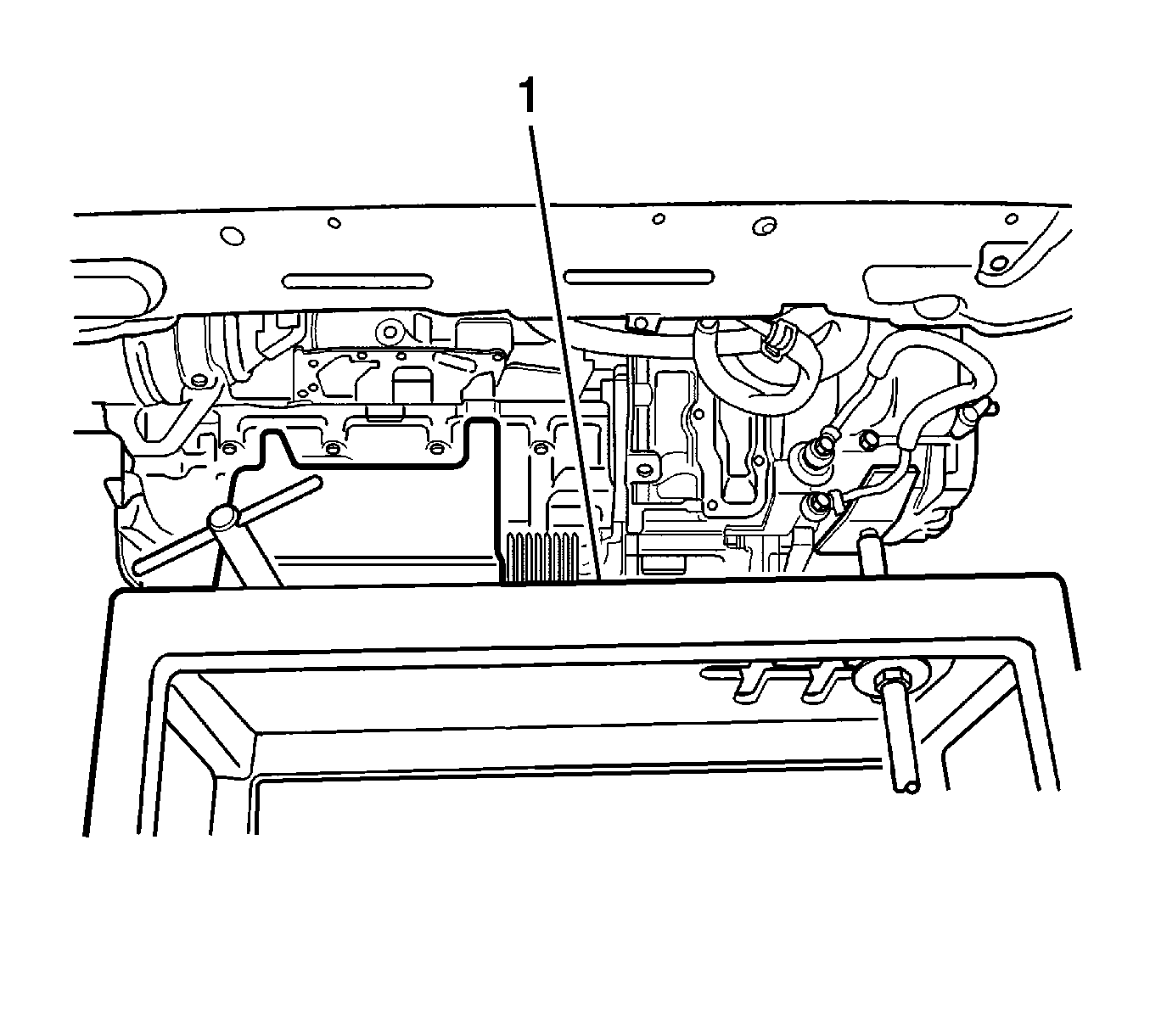
Notice: When raising or supporting the engine for any reason, do not use a jack under the oil pan, any sheet metal, or the crankshaft pulley. Lifting the engine in an unapproved manner may cause component damage.
Installation Procedure
- Install the engine assembly to the transaxle assembly. Refer to Transmission Replacement in Automatic Transmission.
- Slowly lower the vehicle.
- Using theJ 39580 , support the engine transaxle.
- Install the transaxle mount. Refer to Transmission Mount Bracket Replacement in Automatic Transmission.
- Install the right engine mount. Refer to Engine Mount Replacement .
- Connect the drive axle assembly to the transaxle.
- Install the cross member.
- Install the lower engine mount. Refer to Engine Mount Replacement .
- Connect the fluid cooler outlet hose from the transaxle.
- Connect the fluid cooler inlet hose from the transaxle.
- Connect the lower radiator hose at the coolant pipe.
- Connect the A/C compressor connector at the A/C compressor coil.
- Connect the brake vacuum hose at the intake manifold.
- Connect the vacuum line from the charcoal canister purge solenoid.
- Connect the heater outer hose at the heater core.
- Connect the heater inlet hose at the heater core.
- Install the front exhaust pipe. Refer to Front Pipe Replacement in Exhaust System.
- Install the front wheel well splash shield.
- Install the front wheel. Refer to Tire and Wheel Removal and Installation in Tires and Wheels.
- Connect the A/C compressor hose assembly and the connector from the compressor. Refer to Suction Hose Replacement in Heating, Ventilation, and Air Conditioning.
- Connect the power steering pressure hose and the power steering suction hose from the power steering pump. Refer to Power Steering Pump Hoses and Pipes Replacement in Power Steering System.
- Connect the upper radiator hose at the thermostat housing.
- Connect the gear shift control guide with the bolt.
- Connect the backup switch connector from the transaxle case.
- Install the surge tank. Refer to Radiator Surge Tank Replacement in Engine Cooling.
- Connect the engine wiring harness connectors.
- Connect the battery lead at the fuse box.
- Install the battery lead nut at the fuse box.
- Install the fuse box cover.
- Install the battery and battery tray. Refer to Battery and Battery Tray Replacement in Engine Electrical.
- Recharge the air conditioning system, if equipped. Refer to Refrigerant Recovery and Recharging in Heating, Ventilation, and Air Conditioning.
- Fill the engine coolant. Refer to Cooling System Draining and Filling in Engine Cooling.
- Connect the air intake tube to the throttle body.
- Connect the breather hose to the valve cover.
- Connect the manifold intake temperature (IAT) sensor connector.
- Install the air inlet duct bolts the air inlet duct.
- Install the air filter bolts and the air filter assembly.
- Install the fuel pump fuse.
- Fill the crankcase with engine oil.
- Connect the negative battery cable.
- Start engine and inspect for leaks.

Notice: Refer to Fastener Notice in the Preface section.
Notice: If the engine is damaged internally and a new engine assembly is installed in the vehicle, ensure that all foreign material is flushed out of the cooling system. You must also flush out the oil cooler system. Failure to rid the oil cooler system of debris can result in engine damage.
Notice: When raising or supporting the engine for any reason, do not use a jack under the oil pan, any sheet metal, or the crankshaft pulley. Lifting the engine in an unapproved manner may cause component damage.












